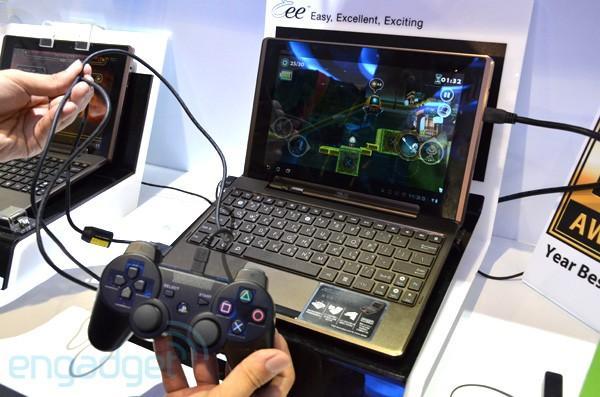
Smartphones and tablets are great for many things. Most notably, they're used for consuming content, keeping us up to date on work, school and the latest of our favorite blogs from anywhere in the world at any time. But the vast selection of games available are also wonderful for keeping us entertained when we need it most: in the waiting room at the doctor's office, during a flight layover or those extra long drives to the in-laws' house for the weekend.
At this point, hardware and processing power are limiting factors when it comes to mobile games. You can't expect to have the full console gaming experience from something you can slip into your pocket and take with you everywhere you go. The concept has been tried before – beginning with the Game Boy, and more recently endeavored with the likes of the PSP or Nintendo DS – to limited success.
No, mobile gaming is great simply for its portability – levels are short and quick, and exiting a game only to pick up where you left off has never been easier. Story lines are sparse and with little to no depth, and gameplay is decent, but not comparable to that of a full-fledged console game. Along with hardware restraints, though, there is another problem with mobile games. They're fun while in a pinch, but sit down for an hour and play and you'll probably work your way through at least 90 percent of the game.
Over the six months or so, however, mobile gaming has taken a turns for the best. More in-depth games have begun springing up left and right. A perfect example is 9mm, which is a sandbox, third person shooter game and looks eerily similar to Grand Theft Auto III. I bought it in hopes of playing it and actually enjoying a mobile game for a change, but unfortunately, it will not work on my Galaxy Tab for some reason. 9mm is only one of the many PlayStation-esque games, that bring back fond memories of console gaming of the late 90s, to arise. Not only that, but console gaming emulators have made their appearance, bringing PlayStation, Nintendo and other classic console games to your fingertips.
With the inclusion of USB gaming controller support and HDMI out options for ICS phones, gaming for Android could take another major turn.
In Honeycomb, Google added USB peripheral support. If your tablet had an HDMI out port, you could easily plug your tablet into your television via a micro HDMI and connect a USB gaming controller, giving you access to play your tablet games through a much larger TV and with much more suitable controls than a unwieldy touchscreen. I used to do this with my Transformer quite often, if just for the nerd factor, and it was quite enjoyable – especially playing Twisted Metal II. Ah, nostalgia ...
That said, we all know how much success Android tablets have been met with. This time around, handsets will also be able to enjoy USB host support with the Ice Cream Sandwich update. Given your phone has either HDMI out or MHL support, you will also be able enjoy some of your favorite games from the big screen.
It's worth noting that adding a few features in a software update will not turn your phone into a full-fledged gaming console. It still will not be capable of playing 360-like games without either catching fire or melting first. But hardware advancement – GPUs, CPUs, memory, etc. – of mobile technology is quickly closing in on the PC world. And the fact that one of the chief Android engineers is promoting this specific feature as a way to turn you phone into a "video games console" is quite promising. Maybe Google will begin to focus a little more on this.
My only hope is that this added feature of Android will garner the attention of game developers and that we will begin to see longer, more in-depth games with controller support. PlayStation emulators will do for now, but I'm ready for some serious gaming from my phone. Ice Cream Sandwich may be just the update to deliver. And here's to hoping that in a few short years, the smartphone will quite literally be able to do it all.
Image via Engadget